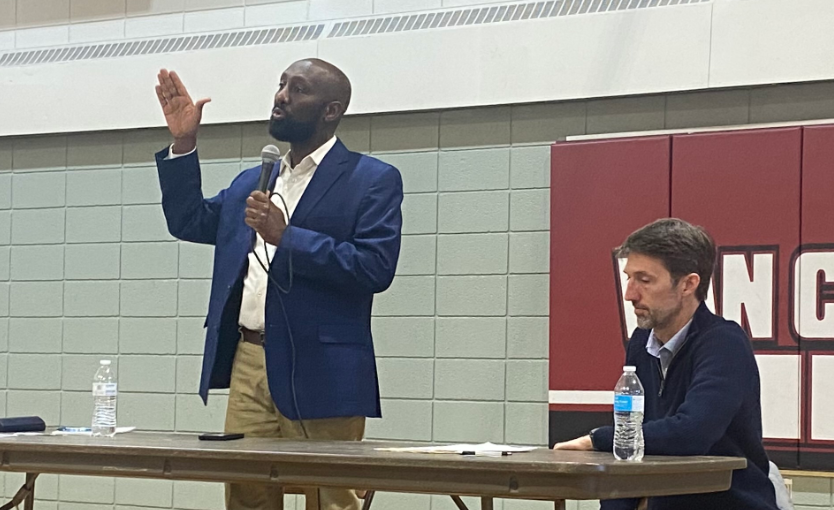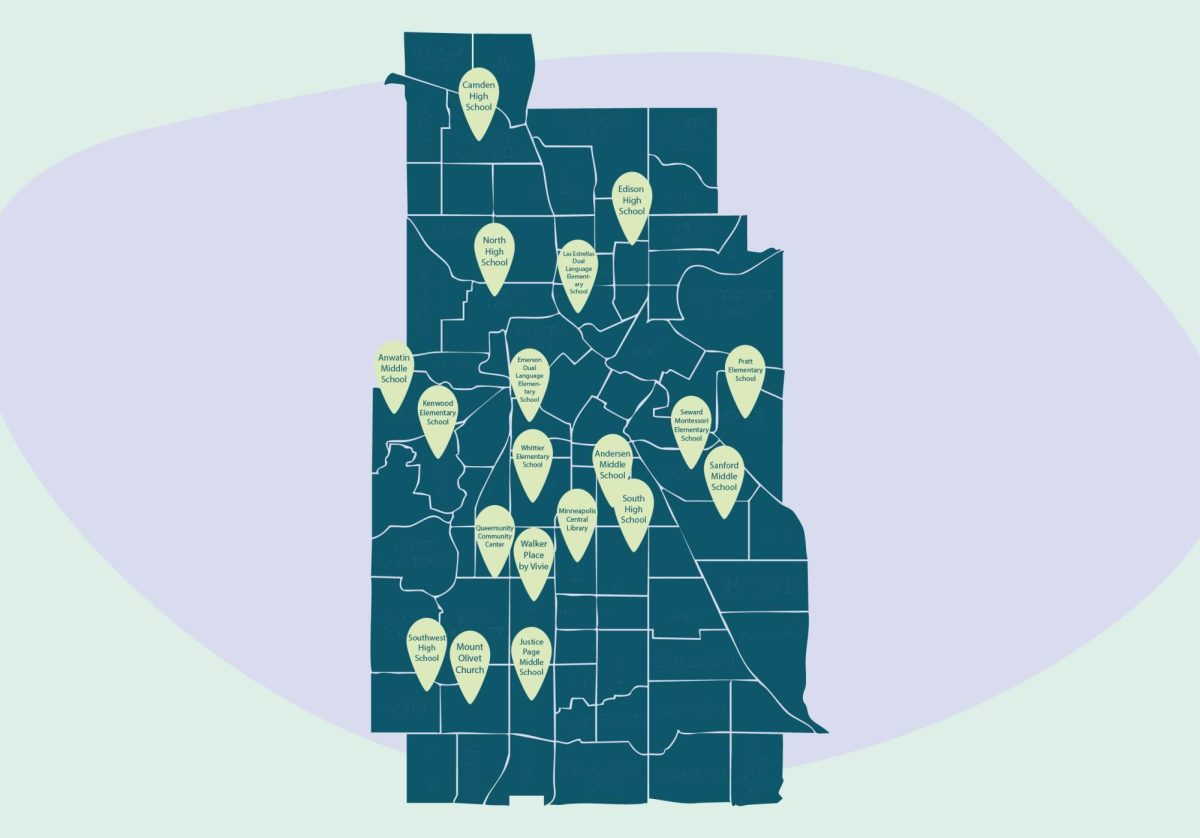Minnesota senators and University of Minnesota researchers attacked President Donald Trump’s plans to significantly cut university healthcare funding at a press conference Wednesday.
The press conference came after the Trump administration announced it would cut $4 billion in federal funding for research at universities nationwide on Saturday. According to NPR, a $4 billion cut in funding would cap funding from the National Institute of Health (NIH) that goes to overhead costs at 15% — far below the 54% the University currently gets.
These overhead costs, often referred to as indirect costs, are responsible for funding research building facilities, training undergraduate students, tech support, worker salaries and more.
Gregg Goldman, the University executive vice president for finance and operations, said the proposed cuts could lead to a $100-130 million impact annually at a Board of Regents meeting Thursday.
Even though a federal judge blocked Trump’s order on Monday, senators at the press conference urged people to call and pressure their elected officials to prevent it.
University administrators are preparing to adjust the budget to account for the funding loss while state legislators look at how to financially support the University going forward.
Sen. Doron Clark (DFL-Minneapolis) said the NIH cap could lead to significant job loss at the University.
“This will harm us, this will undermine Minnesota’s nationwide, worldwide leading research that we do, and Trump is causing uncertainty, Trump is eliminating jobs and Trump is harming Minnesota,” Clark said.
Sen. Alice Mann (DFL-Edina) said the decrease in this indirect funding endangers the research dealing with life-saving medicine.
“It means that people are going to lose their jobs,” Mann said. “Researchers, lab technicians, scientists, people who have dedicated their lives for the advancement of healthcare, like medical technologies and life-changing medicines like insulin, those people in this country are being discarded and left behind.”
Associate professor Rebecca Shlafer is in the fourth year of a five-year NIH-funded study analyzing pregnancy and postpartum support for incarcerated women in eight state prisons. Shlafer said she uses indirect funding to pay staff wages and losing funding in the fifth year of the study could cause the entire program to shut down.
“To me, it’s like we’ve trained for a marathon, but at mile 20 they’re telling us the race is over, the course is closed and just go home,” Shlafer said. “All of the work we’ve put into date will stop and the plans that we have made for this last year of the project will be upended.”
Graduate student and researcher Rachel Dick, who is researching genetic risk factors for schizophrenia, said she received a $15 million grant from the NIH.
“Those costs won’t go away simply because NIH is refusing to cover them. Universities like the U are now on the hook for hundreds of millions of dollars that go towards maintaining every aspect of our research environment,” Dick said. “Indirect costs pay for an essential, if unglamorous, part of science.”
University President Rebecca Cunningham said University leaders are partnering with higher education associations to adjust to the changing situation.
“I recognize that news of this notice creates a significant level of fear, uncertainty and concern. Please know that I am committed to ensuring our University’s primary missions of teaching, research and outreach thrive,” Cunningham said in a statement. “I will continue to advocate on your behalf, as the University explores every avenue to aggressively address the challenges posed by this notice.”
Sen. Omar Fateh (DFL-Minneapolis) said he is talking with Minnesota legislators about covering the funding gap if the administration mandate returns.
“This is a moment for us to recognize that our obligation to serve the needs of Minnesotans comes before our obligation to serve a political party,” Fateh said. “I call on my colleagues on both sides of the aisle to call for these cuts to be reversed and work with us on ways to mitigate their impact this legislative session.”
Dick said scientists and researchers need to stand united during this time of immense uncertainty.
“I think one of the most important things that we can do is stand unified as a scientific community,” Dick said. “What we do is important. Our community needs to be supported and reaching out to legislators and elected officials is important, but I think really the most important thing to do is just to find community in times like this.”















Thank you, MN Legislature
Feb 14, 2025 at 4:17 pm
I am glad to see MN Legislators stepping up to the plate on this issue. Higher Education in Minnesota has seen State appropriations decline for over a decade. We spent plenty of State money for “Feeding Our Future,” but not for higher education and biomedical research. Time to turn this around and recognize the tremendous impact the University of Minnesota has on the health and economy of the State.